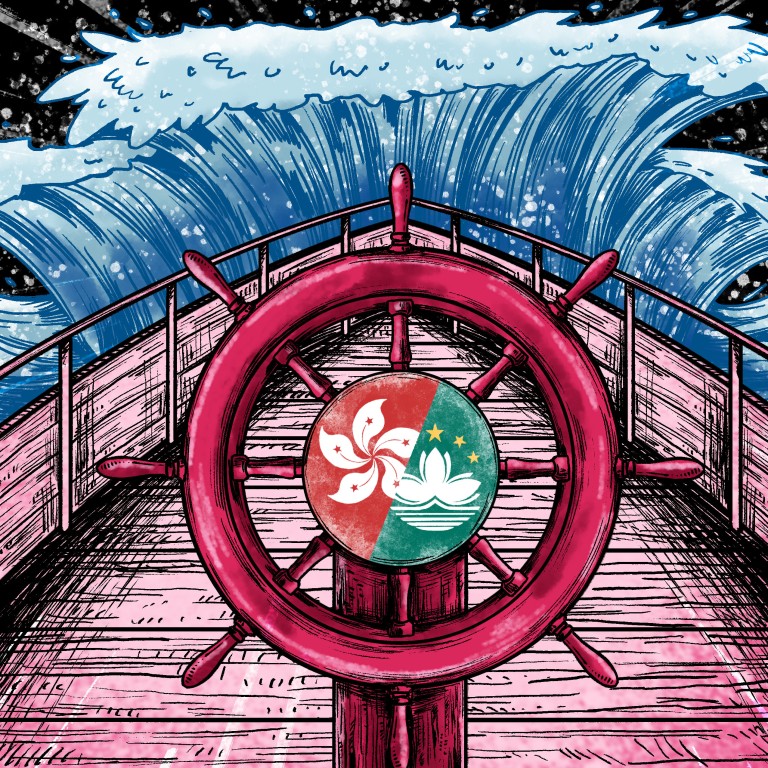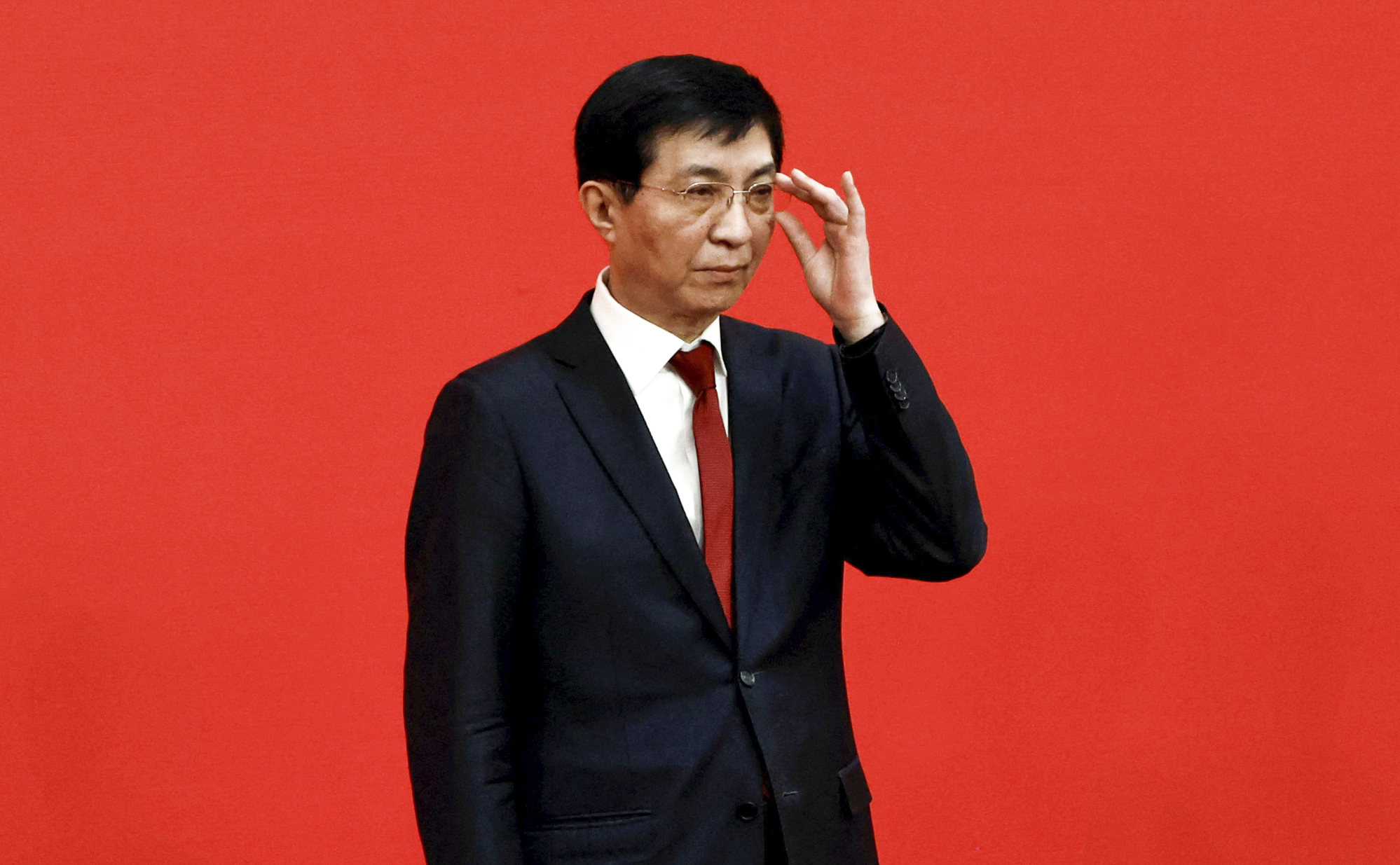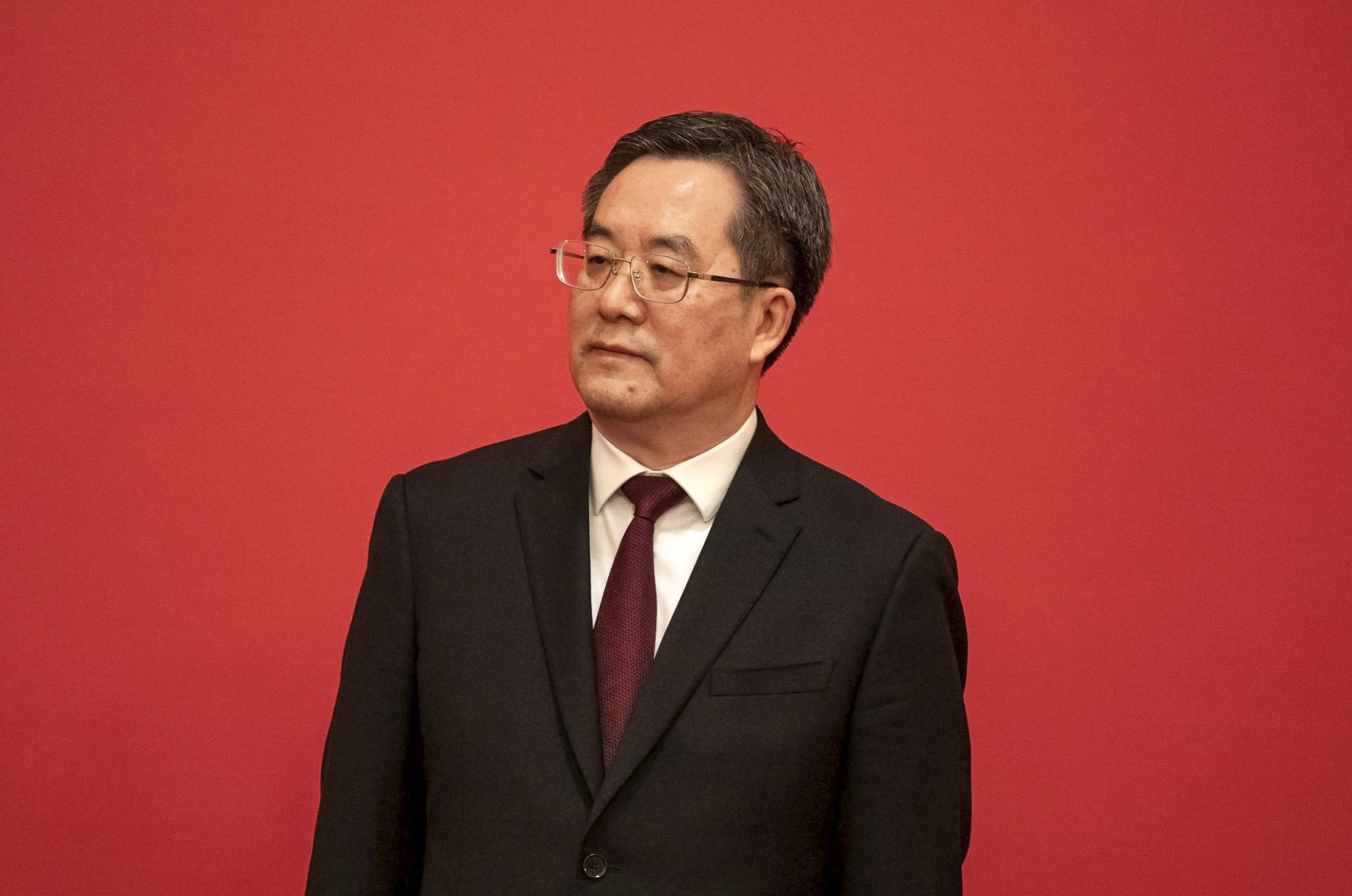
Who are Wang Huning and Ding Xuexiang, the candidates in line to head Communist Party’s Central Leading Group on Hong Kong and Macau Affairs?
- Wang Huning or Ding Xuexiang, both Politburo Standing Committee members, could succeed Han Zheng
- Analysts say political clout of a top party leader needed to make decisions and cut through red tape
Two senior Communist Party leaders – one tipped to be named a vice-premier and the other head of China’s top political advisory body – are Beijing’s leading candidates to oversee Hong Kong and Macau affairs, analysts said.
Wang and Ding are both members of the Politburo Standing Committee, the party’s top decision-making body.
Ding, a close aide of President Xi Jinping, is tipped to succeed Han, 68, as executive vice-premier.
The reshuffle at the two sessions will be one of the last steps in a five-yearly political transition that began at the Communist Party’s national congress in October.
China’s Communist Party reviews names for top state, political advisory roles
Han, who is no longer a member of the party’s Central Committee, is expected to relinquish his role as the head of the Central Leading Group on Hong Kong and Macau Affairs – the party’s top body in charge of the special administrative regions’ affairs – and assume a more ceremonial role by succeeding Wang Qishan, 74, as vice-president.
Song Xiaozhuang, a Hong Kong affairs expert at Shenzhen University, said a challenging external environment and heightened geopolitical tensions remained Beijing’s key hurdles in managing Hong Kong and Macau affairs, although the implementation of national security legislation and electoral reforms had helped restore social stability following widespread protests in Hong Kong in the summer of 2019.

“Some might think that managing Hong Kong will be easy now with the implementation of the national security law and electoral reforms,” Song said. “They are wrong.
“Going forward, managing Hong Kong under ‘one country, two systems’ and pushing for the city’s growth and development amid strong headwinds brought by the intense rivalry between the United States and China is an even more challenging task. The US is going to slam more sanctions on Hong Kong.”
Song said he believed Beijing would follow tradition and appoint a Politburo Standing Committee member to the post as the political clout of a top party leader was needed to make decisions and cut through red tape.
‘Absolute loyalty’ a must as China readies security for ‘two sessions’
“You will need a strong hand from the Politburo Standing Committee to steer Hong Kong and Macau affairs given their complexity, and any missteps would have an impact not only on China’s financial sector and economy, but also on Taiwan and Sino-US relations,” Song said.
“We have seen how Taiwanese leader Tsai Ing-wen was able to take advantage of the unrest in Hong Kong in 2019 and win elections.”
Lau Siu-kai, from the Chinese Association of Hong Kong and Macau Studies, said a Politburo Standing Committee member would be able to report to Xi directly and coordinate responses when “major issues” happened.
Xie Maosong, a senior researcher at the National Institute of Strategic Studies at Tsinghua University in Beijing, said external risks weighed heavily on Beijing when it considered Hong Kong issues.

“Steering Hong Kong affairs requires a lot of political power and wisdom because China, the US and the United Kingdom all share complicated and intertwined interests in the city and this deeply affects its businesses,” Xie said. “Beijing would like to shield and protect areas of common interest to offset decoupling efforts by the US.”
Lau said Ding, ranked sixth in the party’s hierarchy, could be a more likely appointee given his background and relationship with Xi.
“Managing Hong Kong affairs requires lots of administrative experience and power to commandeer various ministries,” he said. “Ding is known for his administrative skills and he is well trusted by Xi as he has served as Xi’s top aide for many years, facilitating and accompanying Xi on many trips domestically and abroad. He will be entrusted with more administrative power after he becomes the new executive vice-premier.
“He was a prominent member of Xi’s entourage when he visited Hong Kong and he is very familiar with Hong Kong affairs.”
Leaders of China’s Hong Kong-Macau policies make way for landmark reshuffle
But Song said Wang would be the favourite because of his expected new CPPCC role. The advisory body, which used to be a political talking shop, has gained greater responsibilities and influence in recent years as Communist Party leaders seek to broaden its representation and use it to solicit views from across society. It also has a traditional role of serving as a united front body in reaching out to compatriots in Hong Kong, Macau and Taiwan.
Song said the recent appointment of veteran diplomat Song Tao, who is expected to be named a vice-chairman of the CPPCC in March, as head of the Taiwan Affairs Office indicated Beijing’s intention to bolster the CPPCC’s role in Hong Kong, Macau and Taiwan affairs.
“If so, Wang Huning may be a better and more natural choice to lead Hong Kong and Macau affairs as he is the fourth-ranked Politburo Standing Committee member and will be in charge of the CPPCC,” Song said.
The former executive deputy director of the Hong Kong and Macau Affairs Office of the State Council, Zhang Xiaoming, was transferred to the CPPCC as a deputy secretary general in June. Observers said Zhang’s transfer signified Beijing’s intention to strengthen the work of the CPPCC in relation to Hong Kong and Macau, with an emphasis on connecting with residents from different walks of life.
The CPPCC is expected to gain more political clout because the party has appointed more younger officials – many with roughly a decade left in their political careers – to its central and provincial leadership roles.
The country’s leadership needs to win back the hearts of the people after three years of Covid controls and the resulting economic disruption sharply divided public opinion.
In Xi’s New Year’s address, he said it was only natural for different people to have different concerns or hold different views on the same issue in a country as big as China, and urged the building of consensus “through communication and consultation” – the role Beijing has traditionally assigned to the CPPCC.







